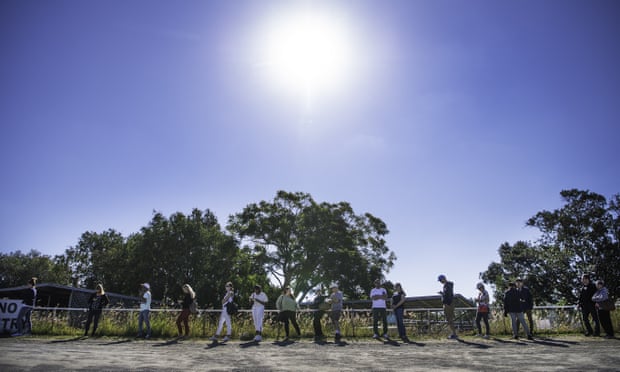Modelling by the Burnet Institute indicates some need for lockdowns and other public health measures will remain long term
People line up to receive a coronavirus vaccination in Brisbane. New modelling shows current levels of vaccine hesitancy could mean Australia does not achieve herd immunity. Photograph: Dan Peled/AAPAustralia is unlikely to achieve herd immunity with current levels of Covid-19 vaccine hesitancy and the higher infectiousness of new variants, modelling from Melbourne medical research laboratory the Burnet Institute has found.
The scenarios modelled by researchers assume a vaccine rollout speed of either 150,000 or 250,000 doses per week, and that on detection of the first case, symptomatic testing increases, isolation of positive cases continues, masks become recommended but not mandatory, and contact tracing continues for up to 250 diagnoses per day.
The projections represent hypothetical near-worst-case scenarios, and model outbreaks that occur once Australia is Covid-free, without lockdowns and other public health measures in place.
Anti-Vaxers have Rocks Between their Ears


No comments:
Post a Comment